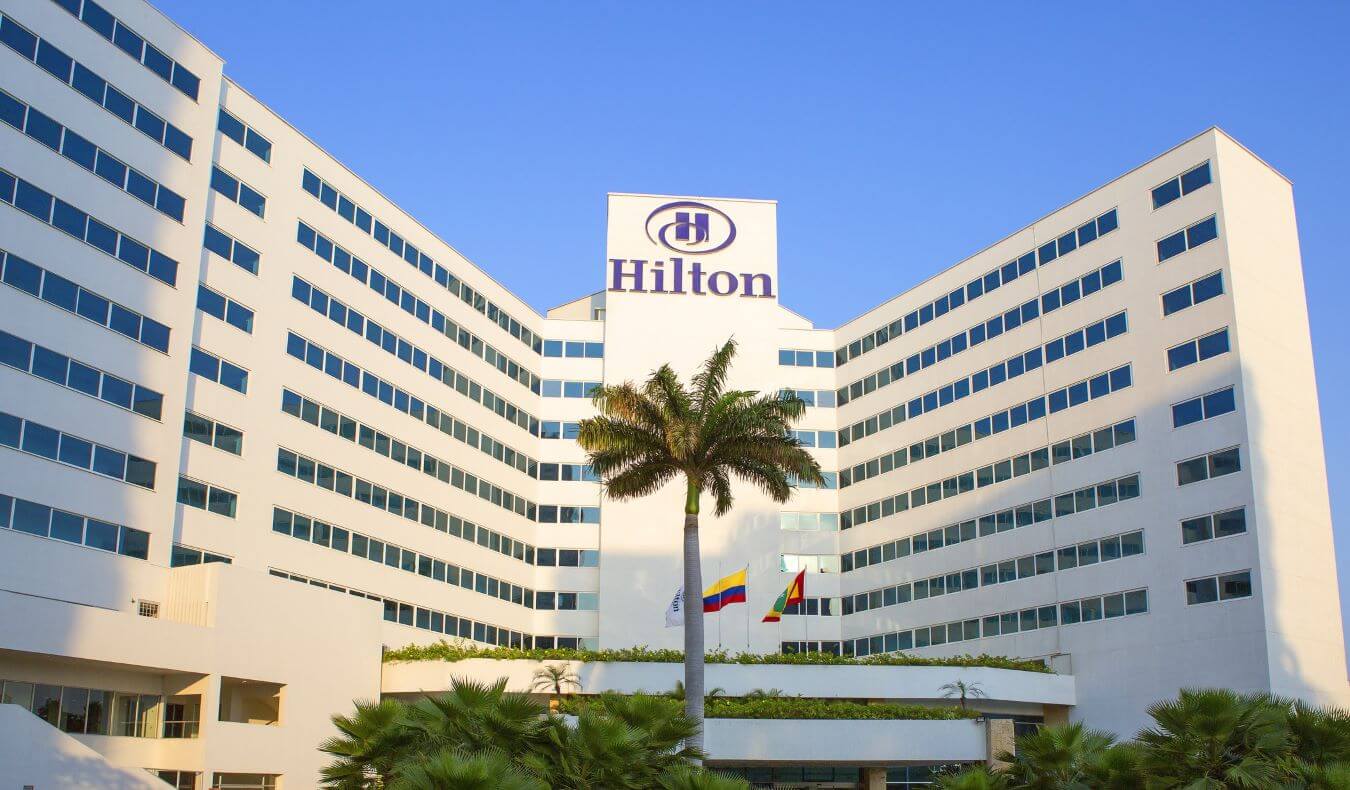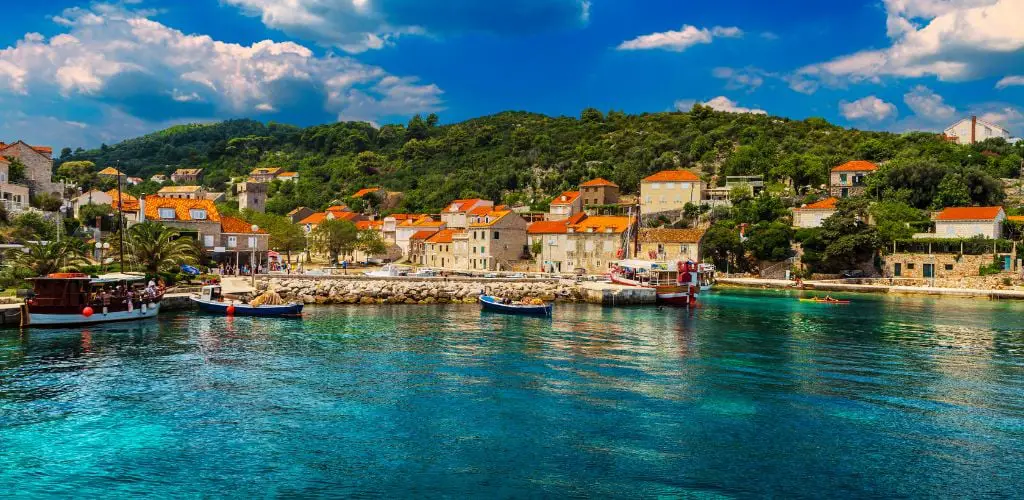
This European destination is one of my favorite places in the world, and once you visit, I think you’ll agree – I loved my time as a digital nomad in Croatia. Not only is it a beautiful place, but it’s a top spot for digital nomads. The world is full of hubs for remote workers nowadays, but for me, Croatia stands out head and shoulders above the rest for so many reasons.
Having spent many months in Croatia, I believe it’s somewhere everyone should live and work in at least once. I can honestly say that I never once got bored, I met so many wonderful people, and the food! Oh, don’t get me started on the food – it’s pretty incredible.
What I’m trying to say is that if you’re on the fence about whether or not you should head to Croatia for a few months, or even a year, go for it. You can choose from various towns and cities, move around as much as you like, and make memories on the go. It’s a win-win.
Top Reasons Why Croatia is a Digital Nomad’s Dream Destination
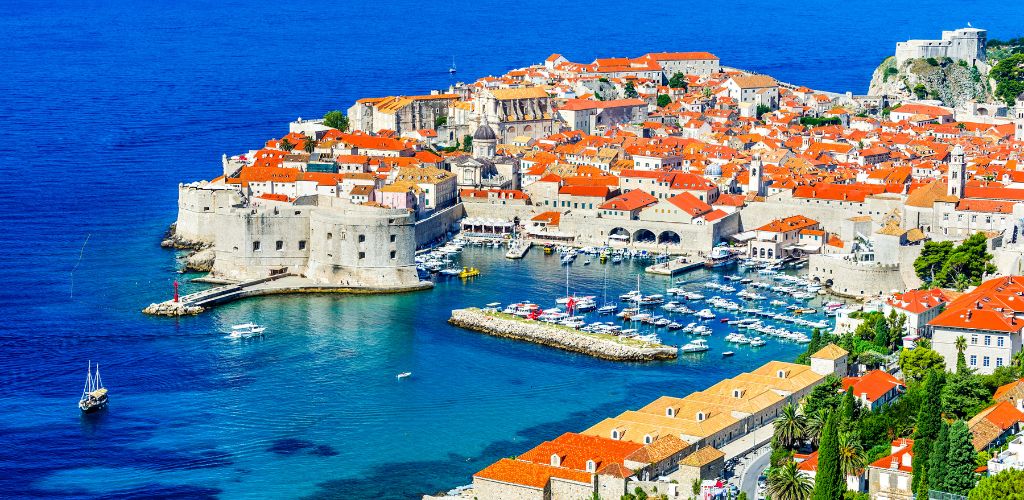

There are countless countries to choose from as a digital nomad these days, so why Croatia? I’ve put together my top ten reasons why I believe that Croatia is a digital nomad’s dream destination. By the end, I hope you’ll be pressing the ‘book’ button on your flight.
1. Amazing Food


Food glorious food indeed! Croatian cuisine is extremely fresh, seasonal, and very hearty. Of course, you’ll find many international menus no matter where you go, but it’s always cheaper and more authentic to try local dishes wherever possible.
I’m not usually the biggest risotto fan, but I love black risotto in Croatia; it just hits differently somehow. Burek is also a must-try, as well as locally sourced truffles, gregada (a traditional fish stew), and pag cheese in particular. As far as drinks go, be brave and try rakia with friends—just be warned; it’s extremely strong!
Eating local food will save you plenty of money during your stay. Touristic resorts, especially in places like Dubrovnik, will set you back a large amount, but if you head to where the locals go, you’ll enjoy your food so much more and keep cash in your pocket in the process. You could also try learning how to cook Croatian fare and that will teach you a new skill and save you money at the same time.
2. Fantastic WiFi Connectivity


As a digital nomad, the internet is extremely important. For the most part, you can’t work without it, so you need to know that you’re going to be able to connect easily and that you’ll have high-quality service available. During my time in Croatia, I never struggled with the internet once, even when I was traveling around.
According to Speedtest, Croatia’s average upload and download speeds are 29.23 Mbps and 71.65 Mbps respectively. In large towns, cities, and resorts, almost all bars, restaurants, hotels, and cafes have WiFi you can use. You can also use an eSIM, such as Airalo, or purchase a regular SIM card and use your data as a hotspot.
I used both cafes and coworking spaces around Croatia and conducted video calls and heavy internet work with ease. I never had a problem and managed to be super-productive in general. Even the more rural areas and islands didn’t pose major issues, so the internet shouldn’t be a concern for you.
3. Easy to Meet Other Digital Nomads and Locals


Since Croatia introduced its digital nomad visa (more on that shortly), the country has become a real hub for remote workers. As such, you won’t struggle to meet other like-minded people from all over the world. Most coworking spaces and hotels also arrange social evenings, where you can make new friends, network, and socialize to your heart’s content.
I found the locals in Croatia to be extremely friendly and very welcoming. In large towns and cities, many people speak English well enough, and even if they don’t, Google Translate is your friend. It helps to learn a few words of the language if possible, but I felt like I was struggling to communicate.
The most popular digital nomad hotspots are Dubrovnik, Split, the capital city of Zagreb, Zadar, Hvar Town, and my personal favorite, Korčula. However, that doesn’t mean you can’t travel around and stay in other places if you find somewhere that calls out to you. I mentioned the high quality of the internet in the last point, and that extends generally across Croatia, so you really do have the freedom to go wherever you want.
4. Stunning Beaches
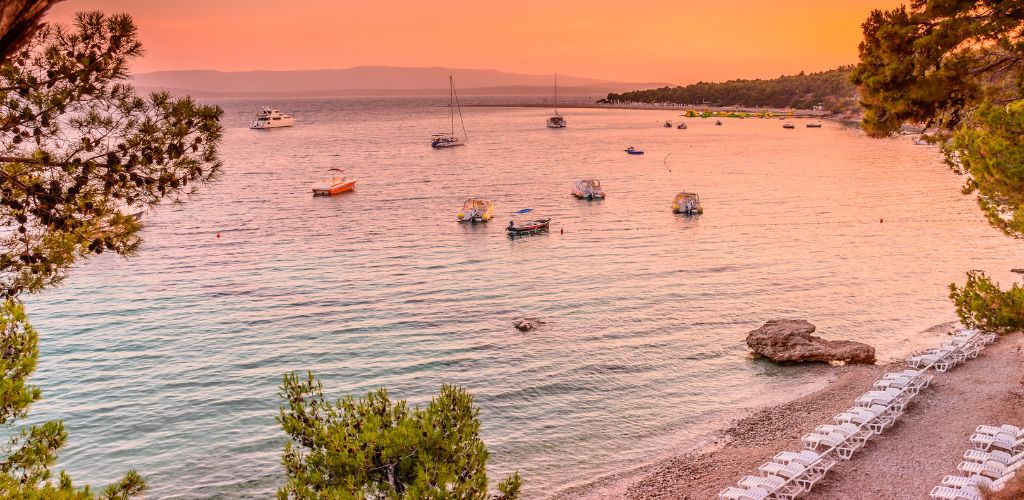

I love a good beach, and I found plenty during my time in Croatia. With 1777.3km/1104.4 miles of coastline, you’ve got a lot to choose from! Copacabana Beach in Dubrovnik is a great starting point, but don’t be afraid to travel to slightly off-the-beaten-track to find some stunning, secluded coves to relax.
Golden Horn on Brač Island is like something out of a beach dream, and Bacvice Beach in Split is somewhere I spent a lot of time. All of this makes it easy to chill out when you’ve finished work for the day or on a precious day off. There are also plenty of boat trips you can take which show you the coastline from a different viewpoint.
If you’re into beaches in particular, it’s a good idea to base yourself somewhere close to the coast, such as Zadar or Split. Dubrovnik is an amazing spot, but it’s extremely busy during the summer months, to the point where you can barely move. I’d personally choose to dip in and out of the city during the hottest months and visit during the shoulder seasons instead.
5. Easy to Travel Around and Explore
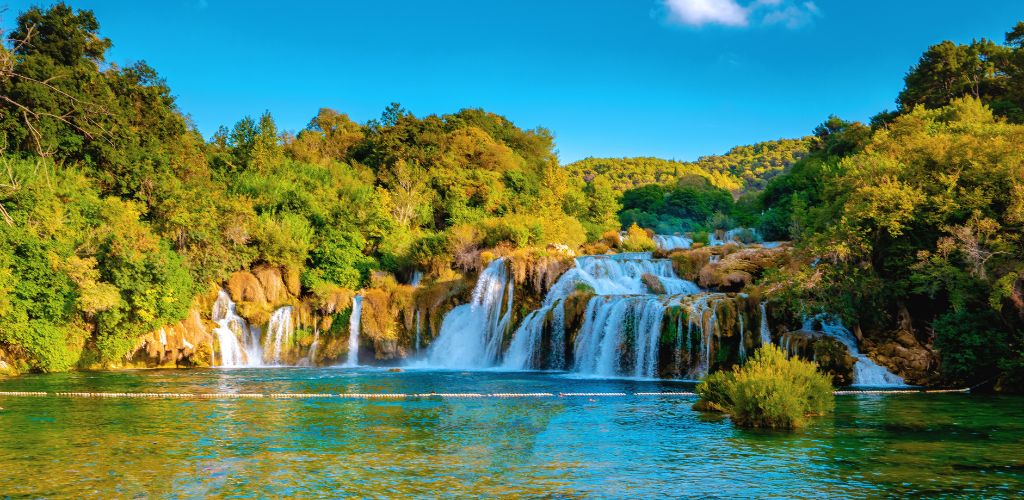

Croatia is packed with many things to see and do, and when you’re staying for an extended amount of time, you’re free to head out and explore. The good news is that it’s pretty easy to do so, with many organized trips, a great public transport network, and easy-to-follow roads. Even if you’re not super adventurous, you won’t find it difficult to get around.
Plitvice Lakes National Park is somewhere that really blew my mind, along with the beautiful Krka Waterfalls. These are two places that are pretty easy to reach if you have a day off and trust me when I say you’ll fill up your camera with amazing photographs. Of course, checking out the Dubrovnik city walls should also be on your to-do list.
In Split, you’ll find the amazing Diocletian’s Palace, and if you’re a Game of Thrones fan, you’ll find several of the filming locations dotted around Dubrovnik and Split. Additionally, there are many beautiful Croatian islands to check out, all of which have their own charm. Put simply, your days off will be packed with amazing sightseeing opportunities and boredom won’t be an issue.
6. Relatively Low Cost of Living


While prices have increased over the last few years, as they have across the world, the cost of living in Croatia is still relatively low when you compare it to other major European cities. There are many ways you can look to cut costs here and there, and I found cooking at home or eating in traditional restaurants to be big money savers.
If you’re looking to rent an apartment, you’ll notice that prices are higher if you try to stay in the center of a city or close to the sea, but venturing a little further back will yield savings. For instance, the average price of a furnished apartment in Split is around €538/$577, with utilities on top. That’s cheaper than some other European cities, such as Barcelona, where you’re looking at prices around €850/$912.
Of course, if you try to live like you’re on vacation, you’ll notice that your money goes a lot faster. However, if you’re careful, and truly immerse yourself in regular, local life, your cash will last longer, and you’ll experience so much more as a result.
7. You can Immerse Yourself in the Culture
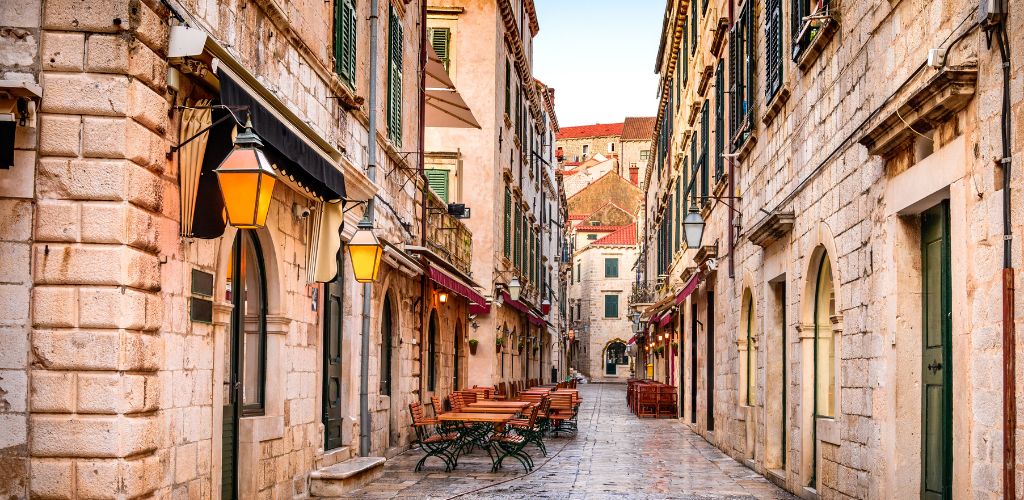

The great thing about Croatia is that you get the best of both worlds. You can throw yourself into the touristic fun that’s available in all major towns, cities, and resorts in the summer months, or you can go down the authentic, local route, and experience the culture. It’s easy to experience both sides of the place depending on your preferences.
Croatian culture is rich and varied, and as I mentioned earlier, the locals are super friendly. It’s fun to learn about the regional differences between areas, and if you venture over to the islands, you’ll find an entirely different way of life. From one place to another, every region has its own special quirks that are truly fun to explore.
For me, experiencing the culture of a new location is what makes travel so enriching, and I never found it hard to live an authentic life in Croatia. In fact, I’d say it’s one of the easiest places to experience the traditions and customs the country is famous for. It’s a big reason for me wanting to return!
8. Digital Nomad Visas are Easy to Obtain
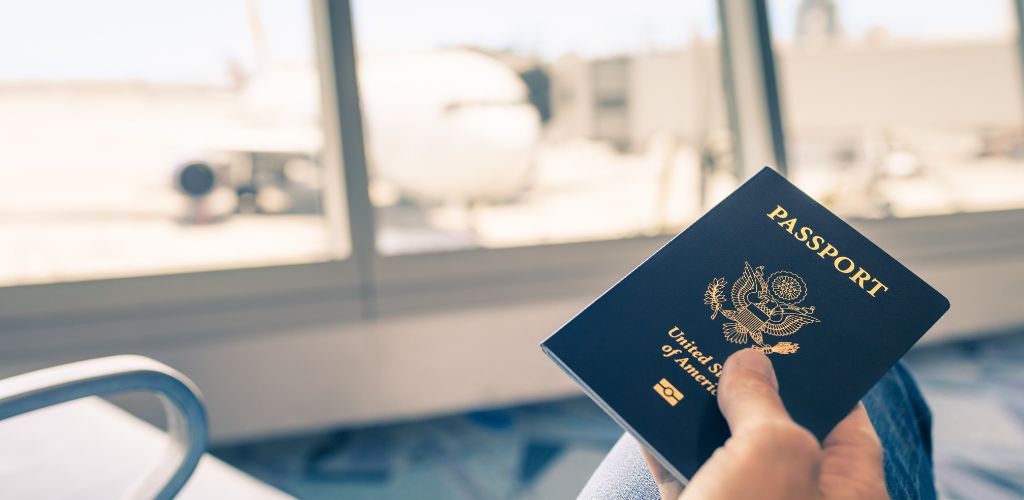

In January 2021, Croatia introduced its dedicated digital nomad visa, which opened the doors in more ways than one for remote workers to spend more time in this beautiful country.
The good news is that this visa is relatively easy to apply for as long as you have all the necessary documentation. In short, it allows freelancers and remote business owners from foreign countries to stay for up to one year, as long as their business is registered outside of Croatia.
It’s also possible to bring your spouse and/or children over with you as part of the family reunification process. The visa lasts for a year and cannot be renewed after that time, however, you can wait for six months and then reapply again. During this time, you don’t have to constantly stay at your registered address; you can travel around the country and only have to update your address if you don’t intend to return to your original location.
You can check all necessary documentation here, and you can apply once you arrive in Croatia or before you intend to travel. If you apply beforehand, I’d recommend applying online a couple of months beforehand, so you have time to receive your visa without any stress.
SEE ALSO: Croatia Digital Nomad Visa: How to Apply & Requirements
9. Countless Coworking Spaces & Laptop-Friendly Cafes
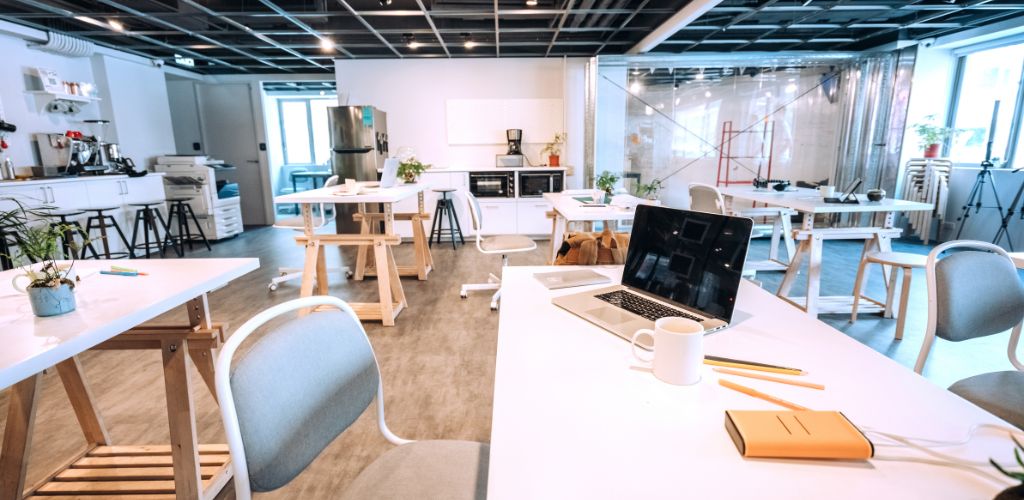

One thing about working remotely in Croatia stood out for me, and that’s the sheer number of places to work from. If you’re not a fan of sitting in your apartment and working, you’ll find many coworking spaces and laptop-friendly cafes dotted around. I worked from both, and I have to say that cafes are my favorite; there’s something fun about getting your work done, soaking up the atmosphere, and getting your caffeine fix at the same time.
Split and Zagreb have the largest number of coworking spots overall, but you’ll find them in all major towns, cities, and resorts. Croatia also has a very active cafe scene, so you won’t struggle to find a comfortable coffee shop to stay for a few hours, as long as you purchase food and drinks proportionate to the amount of time you spend there.
Many coworking spaces also organize social evenings, and they’re great places to network too. I found most coworking spaces in Croatia to be pretty laid-back and creative, and not at all ‘stuffy’ or too office-like. You’ll need to pay to work from a coworking spot but you’ll also get plenty of additional extras, such as free refreshments, a shared kitchen, comfortable chairs, and more.
SEE ALSO: 10 Best Coffee Shops & Cafes in Split (Laptop Friendly!)
10. No Dual Taxation Issues


The digital nomad visa in Croatia doesn’t impose any dual taxation rules, which means you don’t need to pay taxes in the country while you’re living and working there on this visa. Of course, you need to carry on paying tax wherever you’re originally registered to avoid any problems at the end of the tax year.
This isn’t the case for all visas in major digital nomad hotspots so it’s a great perk of choosing Croatia in general. I found the digital nomad visa to be very easy to apply for and I didn’t experience any problems with it during my stay. What’s more, if you receive your income in dollars (in particular), you’ll find that you get a lot more for your money, and the fact you don’t need to pay tax in Croatia helps even more.
In Closing
There’s no denying that Croatia is a super beautiful country and it’s packed with many things to see and do. For me, as far as choosing a place to stay and work from goes, it ticks all the boxes. Croatia really does feel like home once you arrive; the locals are keen to embrace you as part of their community, and as long as you commit to immersing yourself in the culture, you’ll learn and gain so much during your stay.
With the new digital nomad visa in place, Croatia has everything you could possibly need as a remote worker. Of course, nowhere in the world is perfect, but I didn’t encounter any major issues at all during my time there. The biggest issue for me was trying to decide what to do on my days off, as there was too much to choose from!

